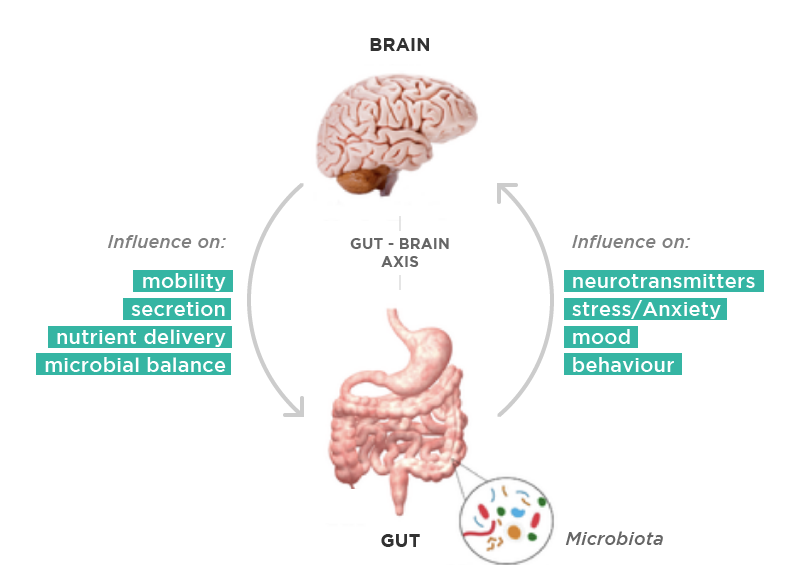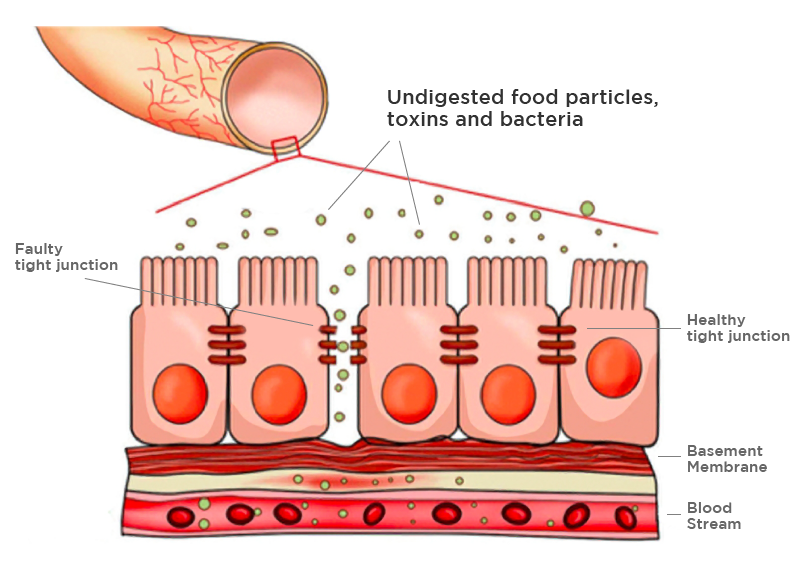
19 . 09 . 2018
Probiotics in the treatment of migraines
Migraine headaches affect approximately 15% of the world population and can lead to a significant decrease in patients’ quality of life. The current understanding is that migraines originate from an inflammatory trigger that starts in the trigeminovascular system and then spreads to other parts of the brain.
Recently, the concept of gut-brain axis has emerged in the medical literature, describing a bidirectional neurohormonal communication between the two systems. The central nervous system coordinates the digestion of food and controls intestinal motility; while the gut has a direct effect on the brain through the absorption of nutrients, neurotransmitter synthesis modulation and spilling of bacterial metabolism products.

Fig. 1 – Gut-brain axis.
The intestinal mucosa epithelium consists of a unique layer of cells, highly specialized in nutrient absorption. However, in the presence of inflammation (caused by flora imbalances, food intolerances or others), breaches in the epithelium may arise, increasing the intestine permeability – leaky gut. As a consequence, partially digested food particles and bacterial endotoxins (lipopolysaccharides) gain access to the bloodstream and, not only do they activate the immune system, but can also promote inflammation in various organ systems. Increased intestinal permeability is, nowadays, identified as an important factor for the development of autoimmune and many other diseases.

Fig. 2 – Epithelial damage that conducts to increased intestinal permeability.
In the specific case of migraines, the affected patients tend to suffer from gastrointestinal problems, like irritable bowel syndrome, more frequently than the average population. Several studies have evaluated the effect of probiotic supplementation (multispecies combinations of Lactobacillus and Bifidobacterium) on migraine frequency, with positive results. In one particular study, 80% of the patients (from an initial sample of 40) experienced almost total relief from migraine headaches, after 90 days of probiotic supplementation along with a multivitamin and mineral complex.
Therapies directed at promoting gastrointestinal health and microbiome equilibrium, including the use of probiotics, can be useful in the treatment of migraine headaches, as well as other neurological pathologies. Studies like these reflect the need to look at the different organ systems as part of a whole in constant communication.
References:
Dai Y-J, Wang H-Y, Wang X-J, Kaye AD, Sun Y-H. Potential Beneficial Effects of Probiotics on Human Migraine Headache: A Literature Review. Pain Physician. 2017;20(2):E251-E255.